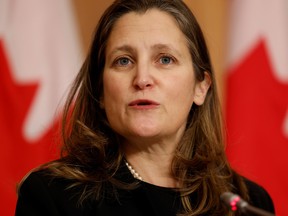The COVID-19 pandemic has caused one of the worst recessions in history, but the recovery represents an opportunity for a "great Canadian restart," according to Royal Bank of Canada’s economic research department. In a new report, Cynthia Leach, the author, argues that policy-makers should look beyond recovery and re-evaluate the policy framework to achieve their goals in the context of a shifting global economy.
A Natural Moment for Policy-Makers
"It’s a natural moment now for policy-makers coming out of the pandemic…to look beyond recovery to re-evaluate the policy framework and what Canada is aiming to achieve in the context of this new shifting global economy," Leach said in an interview. This moment presents a unique opportunity for policy-makers to reassess their priorities and make changes that will have a lasting impact on the country’s economic growth.
Canada’s Economic Performance
Canada’s economy averaged annual growth of 2.1 per cent between 2010 and 2019, which is about the same as the previous decade. However, this rate is down from an average of 2.4 per cent between 2000 and 2009. The slowdown in economic growth can be attributed to several factors, including a decline in business investment and a lack of innovation.
The Need for a Growth-Oriented Policy Agenda
Leach’s report offers a path that policy-makers could take if they want to boost the country’s potential growth rate. She selects six "pillars" for a growth-oriented policy agenda, including an approach to innovation that favours firms that have a realistic opportunity to scale.
Pillar 1: Innovation and Industrial Policy
Despite "above average" government support in recent years, Canadian businesses consistently invest less in research and development than their international peers. This suggests that current approaches to industrial policy need to be rethought. Leach recommends that governments concentrate their spending on programs that reduce carbon emissions and clarify climate policies to minimize regulatory uncertainty.
Pillar 2: The Digital Economy
Data assets are becoming increasingly important as services move online. Canada should forge trade agreements that address barriers to international trade in digital services, and it should guard against homegrown intellectual property being vacuumed up by international technology behemoths.
Pillar 3: Tax Policy
Taxes play an essential role in competitiveness, yet the federal government hasn’t reviewed tax policy since 1967. Leach calls on Parliament to conduct a new review, with a focus on reducing breaks for special interests so personal rates could be lowered to make Canada more attractive to international talent.
Challenges Ahead
Leach acknowledges that implementing these changes will not be easy. "We’re going to have to get a bunch of things right," she said. However, the potential rewards are significant, and policy-makers should seize this opportunity to create a more competitive and innovative economy.
Conclusion
The economic recovery presents a unique opportunity for Canada to restart its economy and achieve long-term growth. By implementing a growth-oriented policy agenda, policy-makers can address the challenges facing the country’s economy and position it for success in the years ahead. As Leach notes, "it’s not going to be easy," but the potential rewards make it well worth the effort.
Sources
- Royal Bank of Canada
- Cynthia Leach, author of the RBC report
